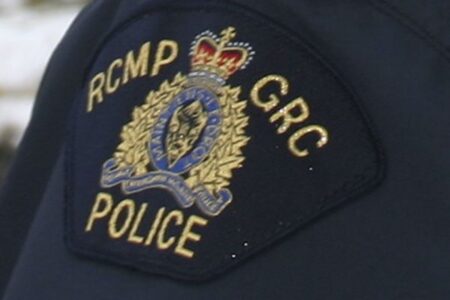Editorial: A conversation with RCMP Sergeant Mike Wicentowich
Recent ongoing media revelations of abusive, discriminatory and deadly police practices across Canada, coupled with reports of numerous racist killings and hyper-militarized police actions from south of the border, have led some to demand “defund the police!” Others have begun using the acronym “acab” – meaning, “all cops are bad”—and stating that even the otherwise “good” cops are bad because they defend and tolerate the bad ones.
This has given me a slight attack of cognitive dissonance, because I had the impression that our local RCMP detachment is headed by a man with a sound and humane approach to policing and is doing good work. I asked to speak with him.
Sergeant Mike Wicentowich agreed, and came to Rossland, equipped with a mask – but we just stayed about ten feet apart, sitting outside in the shade, instead of wearing masks. I asked him about his approach to community policing, and we had a fairly wide-ranging conversation.
When he was posted here, Wicentowich began sending out weekly (or more frequent) media releases on the cases and other incidents dealt with by the Trail detachment. I receive those, and I had noticed an emphasis on public education aimed at crime prevention – such as the regularly-repeated advice to lock homes and vehicles, and not to leave valuable items sitting around unsecured.
I had also noticed an element of compassion and humour. For example, one report detailed an exchange with a person who had been reported for behaving strangely, and who, according to the report, carried on “a side conversation with a crow” while talking to an RCMP officer.
They aren’t alone
Wicentowich commented that the detachment has good relationships with a variety of community groups; they have monthly meetings with mental health professionals with Interior Health (from the Daly Pavilion), and with outreach program workers. He named Career Development Services (CDS) as one valuable ally in helping people overcome barriers to employment, and also in “myth-busting” – “We do not have homeless people being shipped here,” he explained. “If a homeless person is sent here from elsewhere, it’s because they grew up here or consider the place home and feel more comfortable seeking help here.”
Wicentowich said, “There are very few bad people out there—mostly just people who are struggling with poverty, homelessness, mental health issues and addiction – and bad luck.” He said his primary concern with such people is, “What do we have to do to get that person back on track?” He emphasized de-escalation in encounters with people having meltdowns.
He explained that the ambulance service calls the RCMP when they’re unsure about whether there may be a safety issue.
He noted that “We have a slowly declining crime rate,” and wants to figure out how to keep that trend going. He added, “I’m hoping I’m on the right track, and that it’s working.”
I mentioned to him the commonly acknowledged “them and us” attitude among some RCMP officers – the sense that it’s “the Force” versus the world, and that if one isn’t a member of the RCMP, one is automatically viewed with suspicion by RCMP officers. Wicentowich responded that in smaller communities like the ones that make up our local detachment’s area, it’s easier to avoid that by being involved in the community “personally , as well as with support groups.” He said, “Here, we’re good at switching between the police and neighbour roles, and that tends to minimize the ‘them and us’ feeling.” He said he spends a lot of his off-duty time talking with people about issues.
Racism, sexism
Of course, one issue is racism. He said that the RCMP is beginning to address it. “Just denying it is not a solution,” he stated. He has committed to reading regularly to educate himself further about the many faces of racism, and to talking more frequently with people of colour to better understand their experiences and viewpoints. He has read the full Truth and Reconciliation Report and wrote a paper on it for a university course; and has recently read the book “White Fragility,” which challenges other white people to examine closely their own attitudes. He is also familiar with the Halifax police report on the over-representation of minorities in police checks.
He indicated that he is taking advantage of on-line training in Indigenous history as well.
He also brought up the topic of sexism in the RCMP, and the class action lawsuits by females – both officers and civilian employees – against the RCMP for harassment and discrimination. It’s now a top priority, he said, to ensure that women no longer experience sexism in the RCMP.
Mistakes and misconduct
Wicentowich acknowledged that police officers are required to make many judgement calls daily, some of them complex but requiring instant response, and officers may make mistakes. He pointed out that all RCMP officers are governed by the RCMP Act, a federal statute, and the Code of Conduct contained within it – and are also fully subject to the Criminal Code of Canada.
I read through the Code of Conduct and some other sections of the Act, and concluded that if every officer’s behaviour was always fully in accord with their requirements, the RCMP would be the world’s most admired police force.
So, when an officer makes a mistake or is just a bad apple, how does the force deal with that, I asked, and mentioned two Kootenay RCMP officers whose actions have resulted in criminal charges against them – one from the Trail detachment. Besides Criminal Code charges and court proceedings, Wicentowich mentioned the complaints procedures under the Code of Conduct, and the Civilian Review and Complaints Commission for the RCMP, and—for cases of serious injury or death – the Independent Investigations Office (IIO).
And, I asked, are there rewards for good service, and for service above and beyond? Yes, he replied – ranging from positive performance reports, to public recognition in the media, to service awards.
He said that if anyone has concerns locally, they can contact him.
From our conversation, I came away with an impression of an officer dedicated to crime prevention, transparency, accountability – and to fully living up to the high standards of conduct set out in the RCMP Act, and going beyond those high standards to improve the effectiveness of policing within his sphere of influence. If only his influence could spread as fast and as far as (for example) gossip, we would have far fewer police-related scandals and injustices.


























Comments